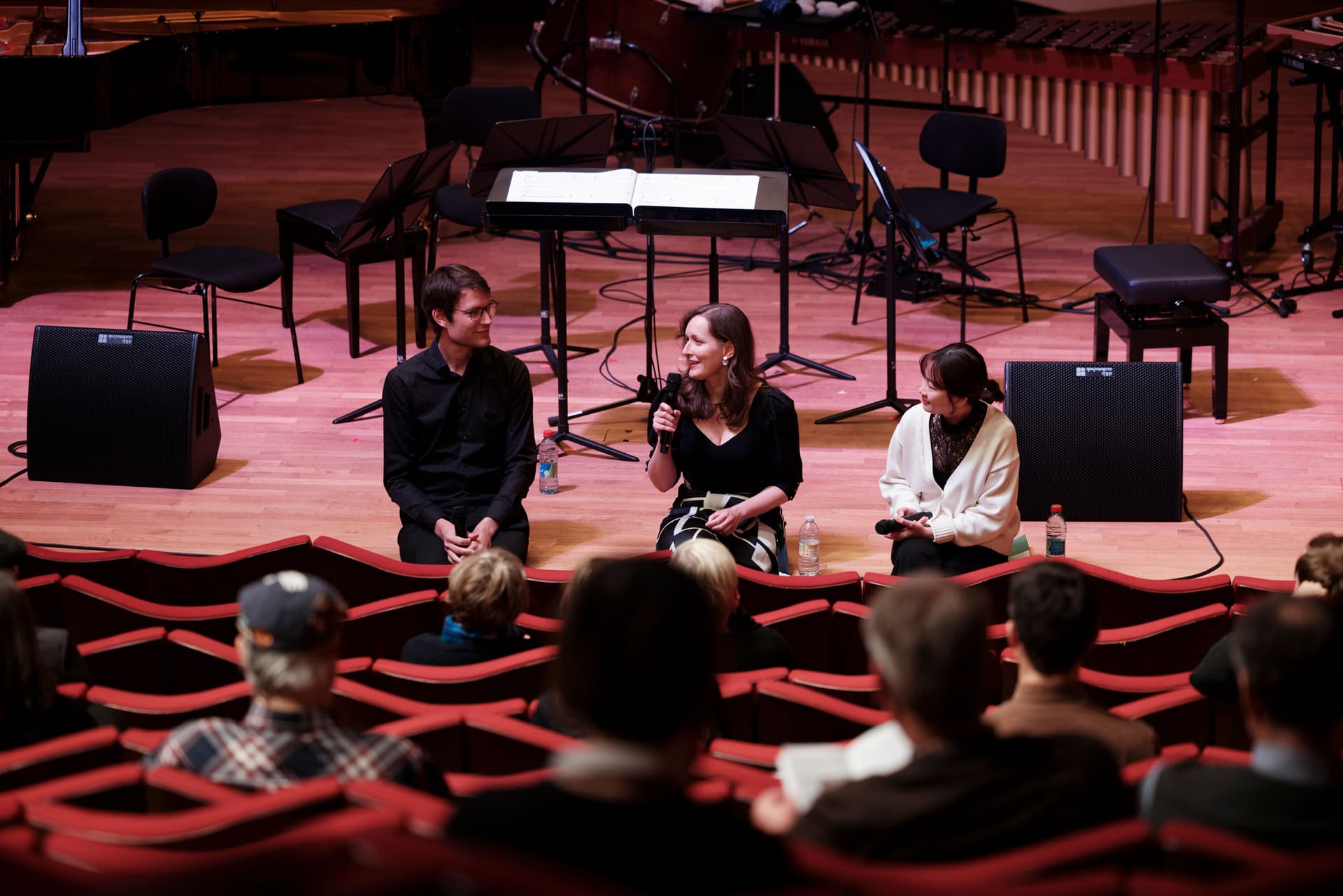United Instruments of Lucilin: Music Without Borders, Tradition Without Limits
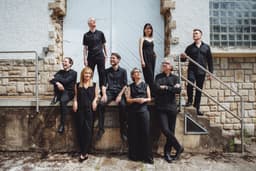
How United Instruments of Lucilin is redefining Luxembourg’s contemporary music scene. In this interview, Guy Frisch and Sophie Deshayes discuss the balance between tradition and innovation, new technologies in music, and the future of artistic creation in the Grand Duchy.
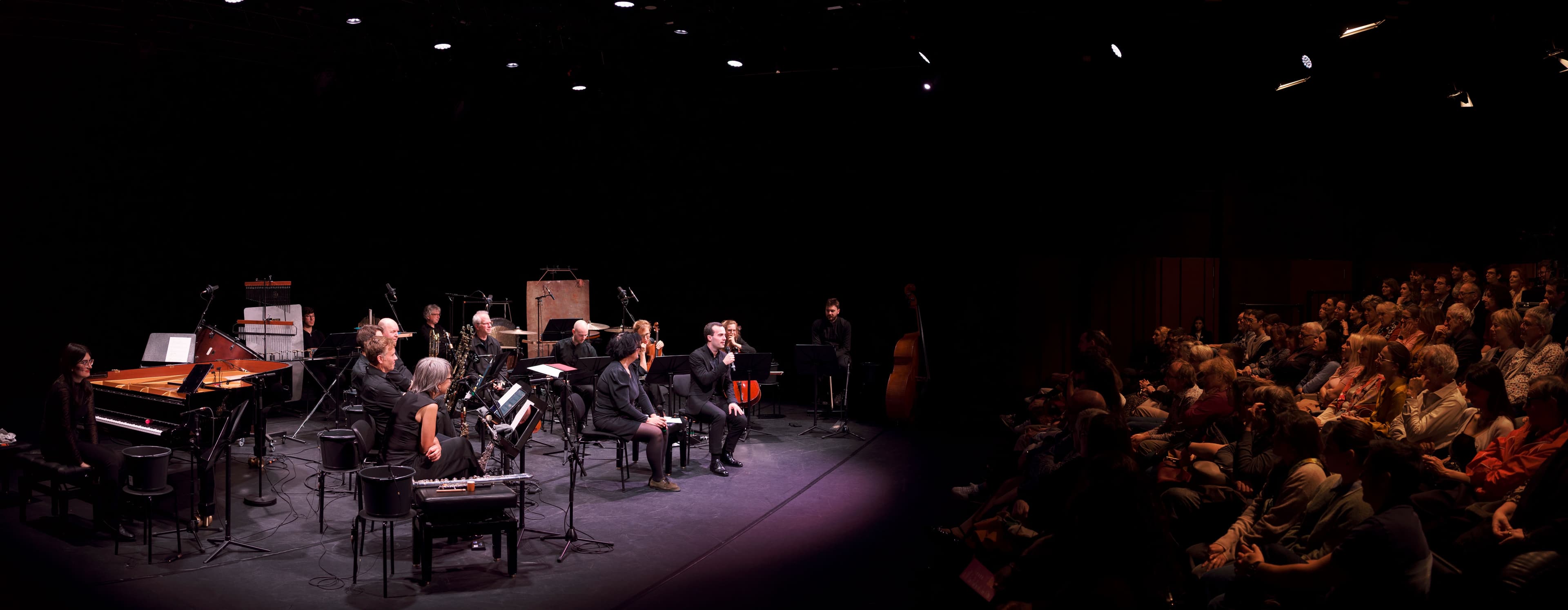
One of Luxembourg’s most distinctive and daring ensembles, United Instruments of Lucilin has been shaping the country’s contemporary music scene for more than two decades. In this interview, Guy Frisch, Strategic Director and percussionist, and Sophie Deshayes, flutist and member of the artistic committee, discuss how the group bridges classical tradition and experimentation, explores new artistic languages, and contributes to making Luxembourg a vibrant crossroads of contemporary creation.
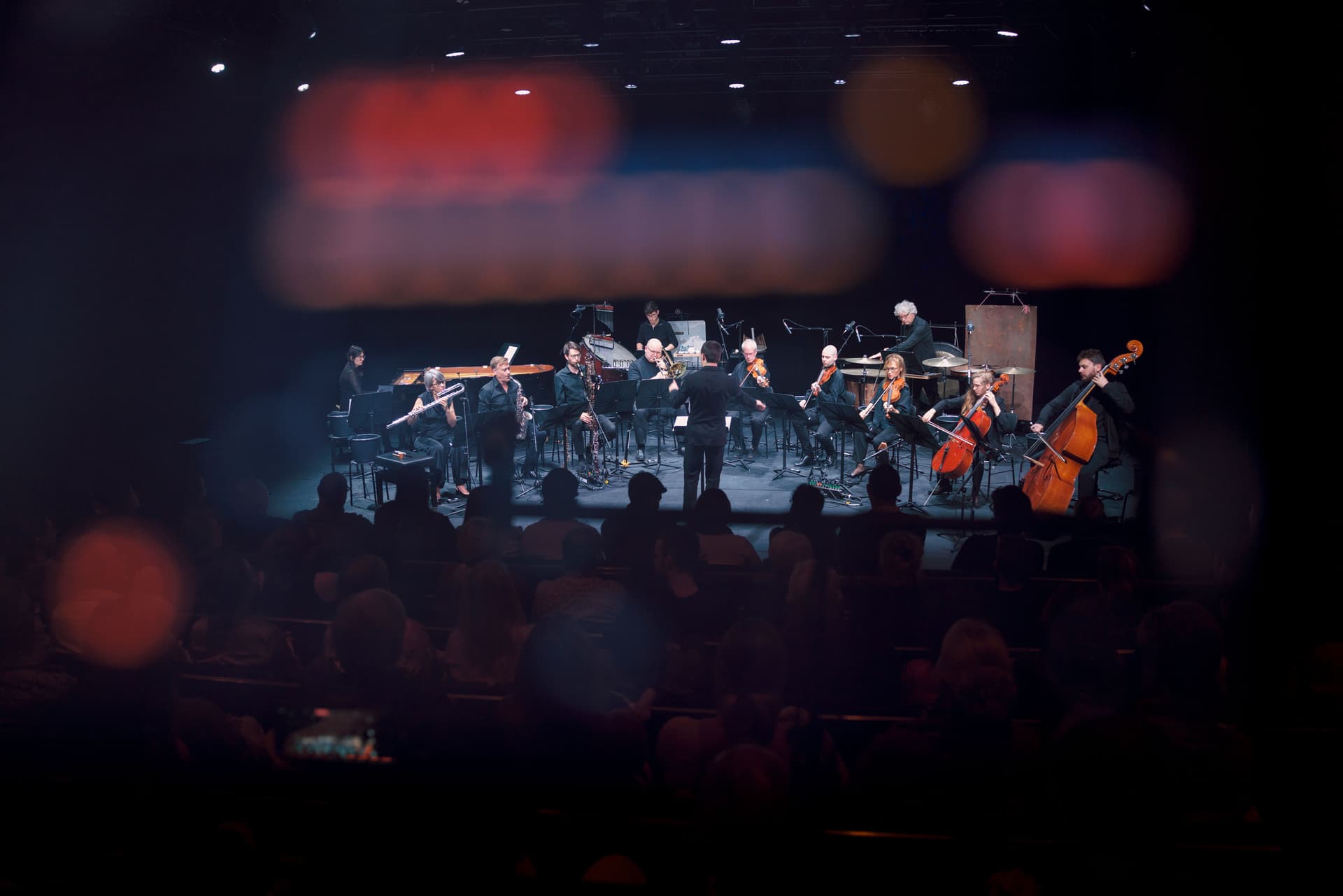
How would you describe the main mission of your ensemble and its role in Luxembourg’s musical culture?
Sophie Deshayes: United Instruments of Lucilin is dedicated to exploring and promoting new music and emerging composers, while fostering dialogue between different artistic forms — both traditional and innovative. We aim to spark the curiosity of Luxembourg’s audiences, as in our recent “Blind Date” at the Philharmonie or the transdisciplinary in-situ performance project “Roots/Routes.”We also seek new sonic languages, actively contributing to the openness of the Luxembourgish art scene, which itself stands at the crossroads of Europe.
Sophie Deshayes
Artistic Committee Member & Flutist
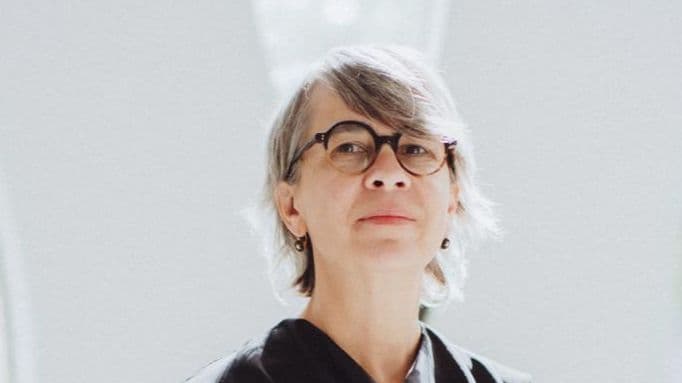
What trends do you observe in contemporary music in Luxembourg? Are there any unique characteristics that distinguish the local scene from other countries?
Guy Frisch: I see a strong desire among young artists to experiment, innovate, and connect with what’s happening internationally in contemporary creation. Established composers are also innovating and very productive. They tend to broaden their scope toward multidisciplinarity — blending or fusing different musical genres while integrating literary, theatrical, electronic, and multimedia elements into their works.A remarkable trait of local artists is the absence of boundaries: their works seem to cross borders both aesthetically and stylistically, showing genuine curiosity and a willingness to engage with social and political topics.
Guy Frisch
Strategic Director & Percussionist
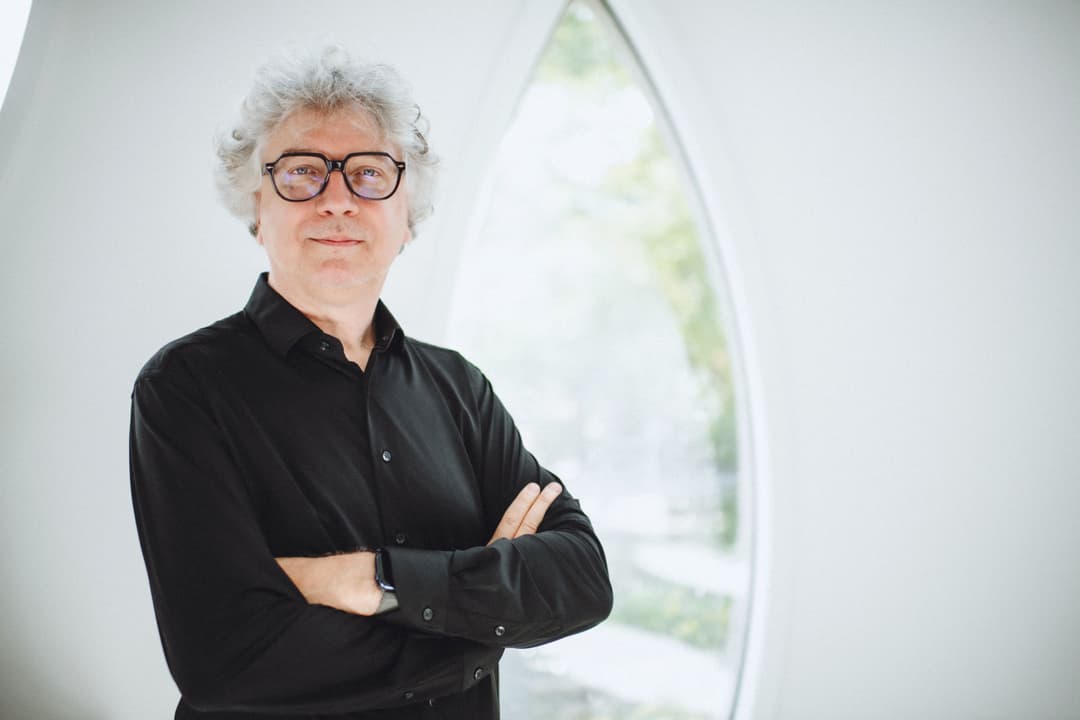
How do you perceive the interaction between contemporary music and classical tradition? Are they complementary or sometimes in opposition?
Sophie Deshayes: “All music has been contemporary!” — that’s our motto. For us, contemporary music and classical tradition are not opposed but complementary, nourishing one another. Classical tradition provides a foundation, a source of inspiration and reflection that guides our artistic approach. New music allows us to push boundaries, explore new forms of expression, and revisit the past through a fresh lens.These interactions create a dynamic balance where heritage and innovation constantly dialogue within our repertoire. At our season-opening concert “Past > Present > Future” on September 25, we presented a classic piece — Luciano Berio’s Folk Songs, themselves inspired by traditional melodies — alongside a new collaboration dear to us with Les Harmoniques du Néon. This project will culminate in summer 2026 at Casino – Forum d’Art Contemporain, exploring sound poetry, radio art, electronics, and live performance.
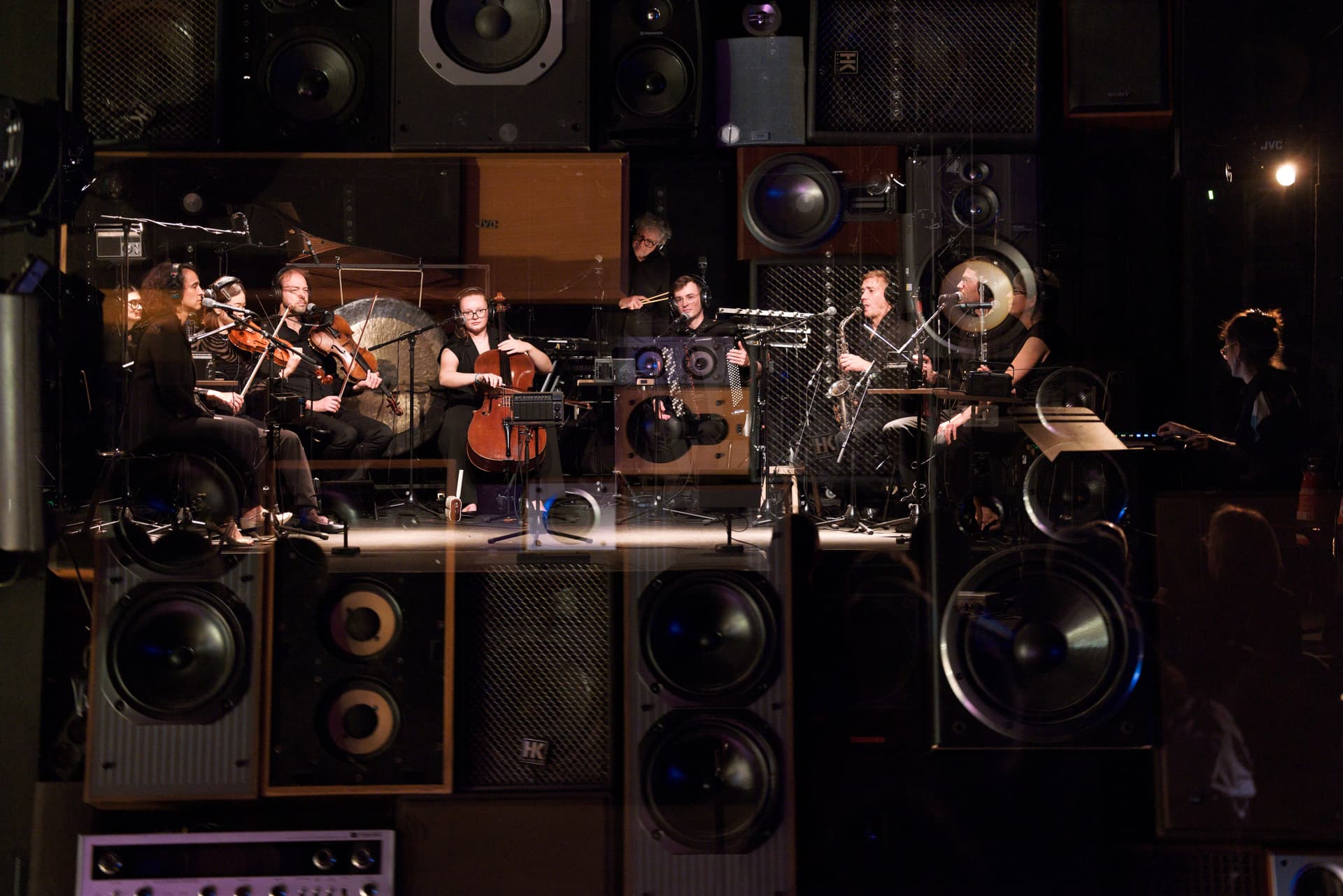
Which contemporary composers or performers from Luxembourg, in your opinion, deserve particular attention — and why?
Guy Frisch: That’s a difficult question, as it is not our role, as an ensemble dedicated to performing new works, to judge or favor one composer over another. Of course, we highlight artists through our programming choices, but we make a point of maintaining balance and neutrality.Our duty is to offer a wide range of works, provoke new creations, and present them to the audience — who will then form their own opinions.
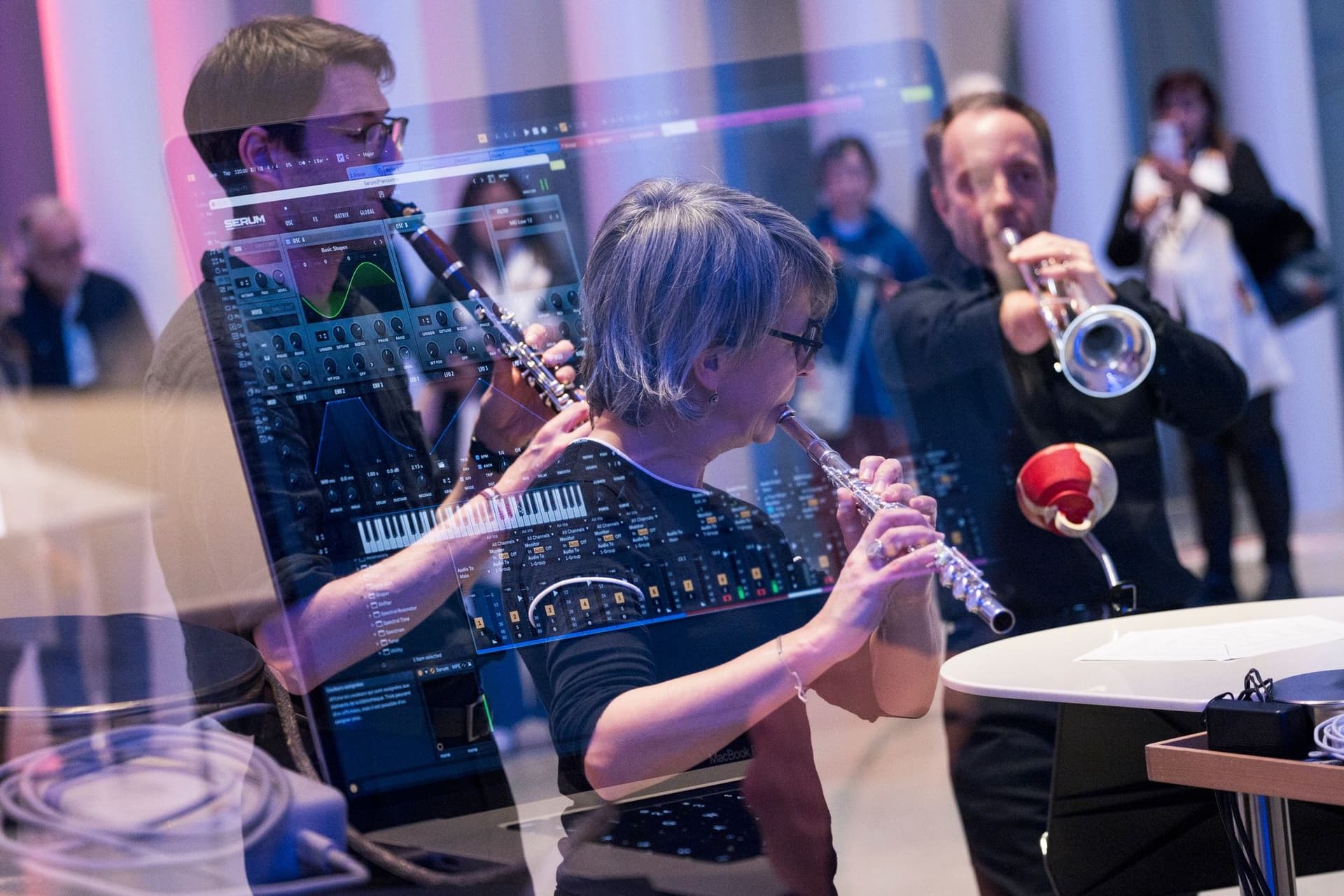
Which projects from your 2025–2026 season do you consider the most experimental or daring?
Guy Frisch: Our most adventurous projects will take place within our Musique Plus series at the Valentiny Foundation in Remerschen in May, June, and July 2026. This residency will host numerous creations combining video, walks, conferences, mini-festivals, dance, and many other artistic forms.We’ll also continue exploring contemporary music at the Philharmonie Luxembourg with our Lucilin: Now! series and through our 25th participation in the rainy days festival. As Sophie mentioned, we’re also developing a new tailor-made project with Les Harmoniques du Néon for Casino, which we’re eagerly anticipating.
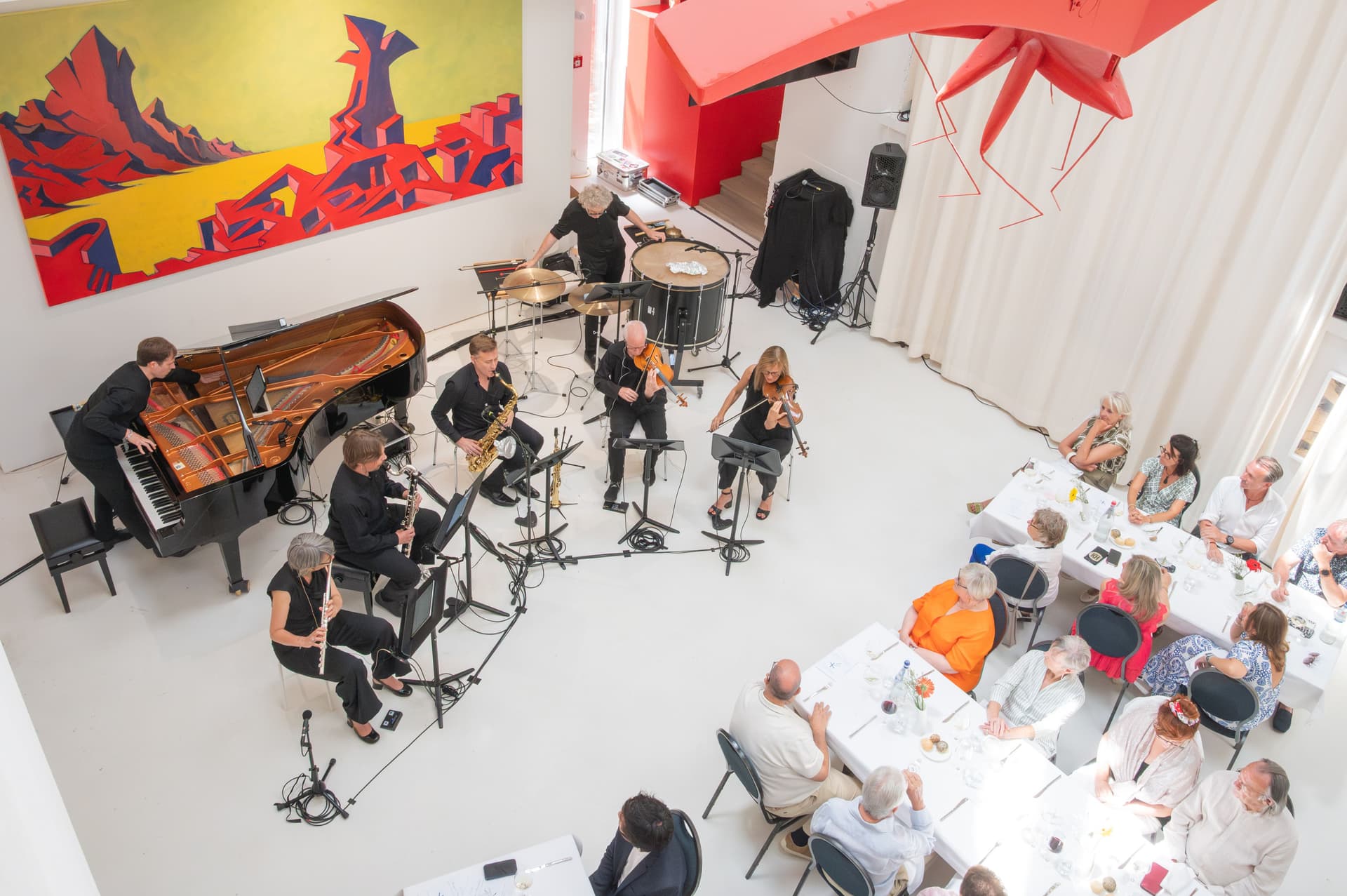
How do you select the works you perform? What criteria guide your choices — current relevance, innovation, or others?
Sophie Deshayes: The selection of our repertoire depends on several factors. We stay attentive to the current musical and artistic landscape while highlighting works by emerging composers as well as emblematic creations of contemporary repertoire.Innovation, artistic relevance, and the potential to connect with our audience are key criteria. We also value interdisciplinary collaborations and projects that broaden the ensemble’s artistic horizons. Our Luxembourg Composition Academy helps us discover emerging talents from around the world each year. The Academy’s Closing Concert will take place this year on Thursday, November 20, at 12:30 p.m. at the Philharmonie, as part of the rainy days festival.
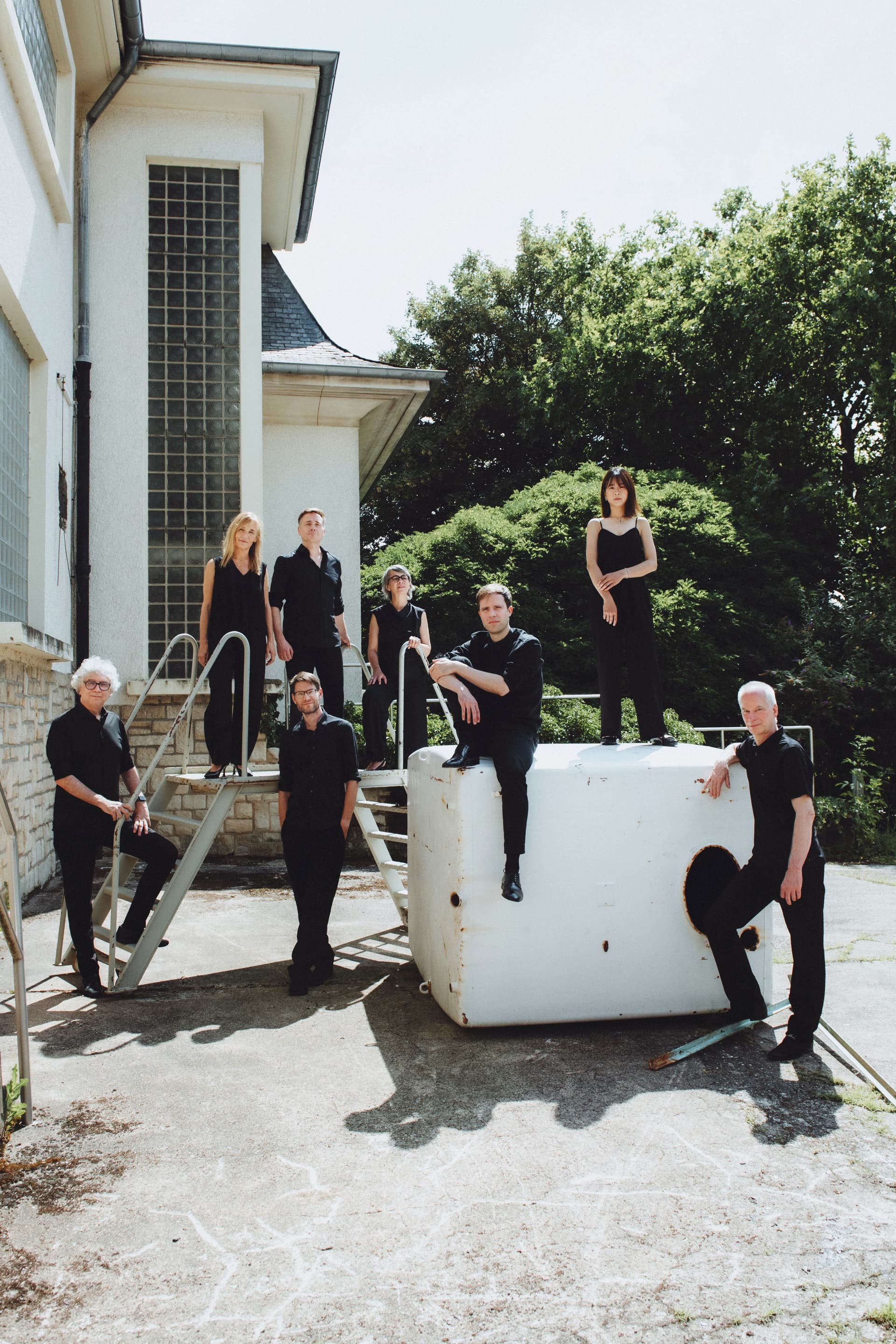
What challenges do you face in promoting contemporary music to a wider audience?
Sophie Deshayes: Novelty and the unknown can sometimes be intimidating. It’s essential to demystify our repertoire, accompany listeners through discovery, and create welcoming contexts for listening.Through post-concert talks, open rehearsals, and informal encounters between artists and the audience — including young emerging performers — we help make contemporary music accessible and alive.In March, we invited young talents from the Conservatoire du Nord to join us for our side by side project “City Life” at CAPE.Recently, at the Philharmonie, we presented a Blind Date concert where the audience discovered a piece without knowing its title or composer. After the first listening, we discussed it together before revealing its identity — and then played it again under a new light.We also expand our reach toward different audiences. For example, last spring we presented Momo by Pascal Dusapin in Luxembourgish for children aged 4 to 8 at the Kulturhaus Niederanven and at Artikuss.
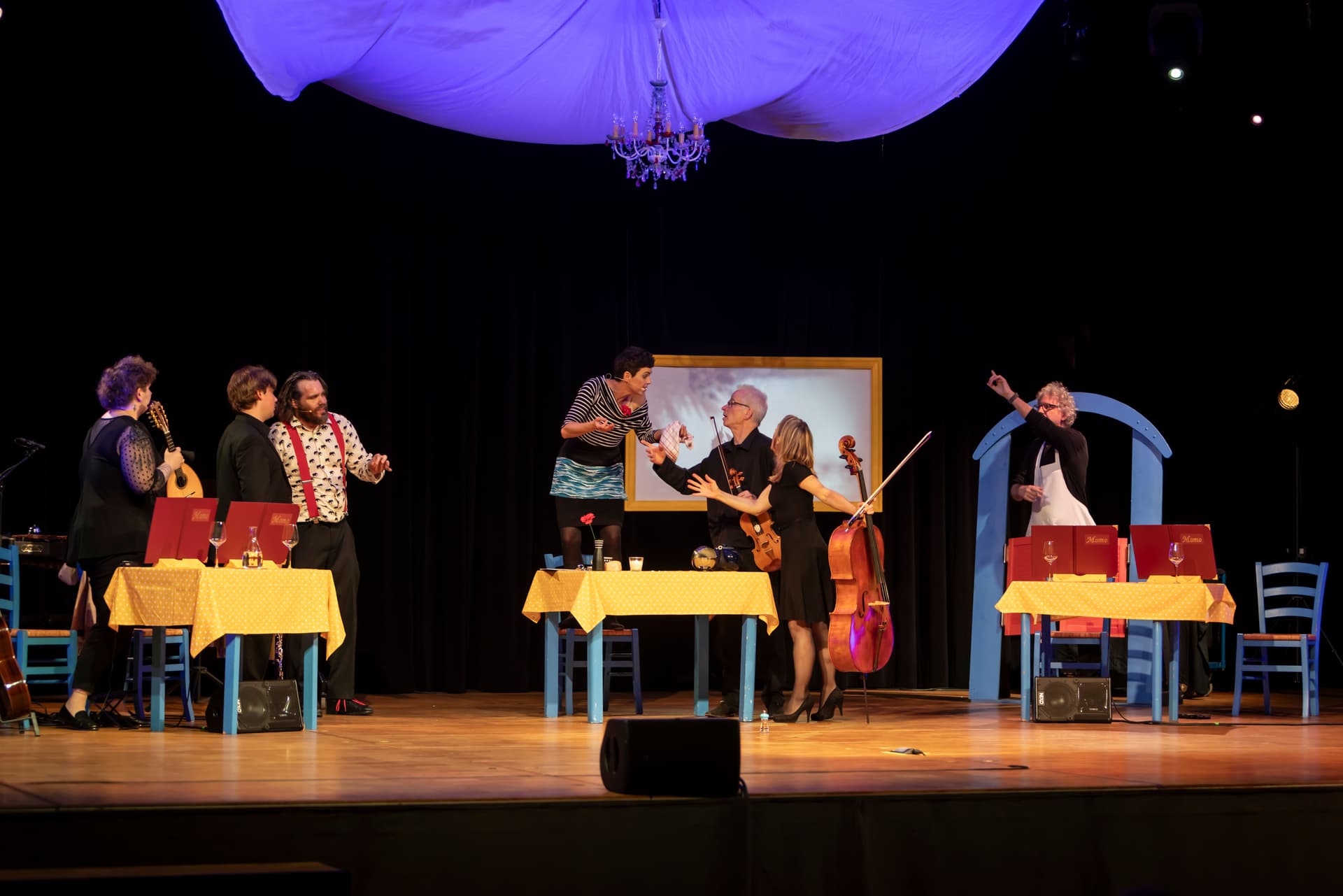
How do modern technologies influence musical creation and performance? Do you use innovative approaches or tools?
Sophie Deshayes: Technological advances play a crucial role in how concert formats evolve. They allow us to explore hybrid possibilities and offer audiences new immersive experiences.Depending on the project and collaborating composers, we integrate interactive devices, spatialized sound, real-time sound-processing software, and multimedia supports. These technologies significantly transform how music is perceived and shared, enriching performance and collaboration alike.Through these innovations, the dialogue between musicians and the audience becomes even deeper.
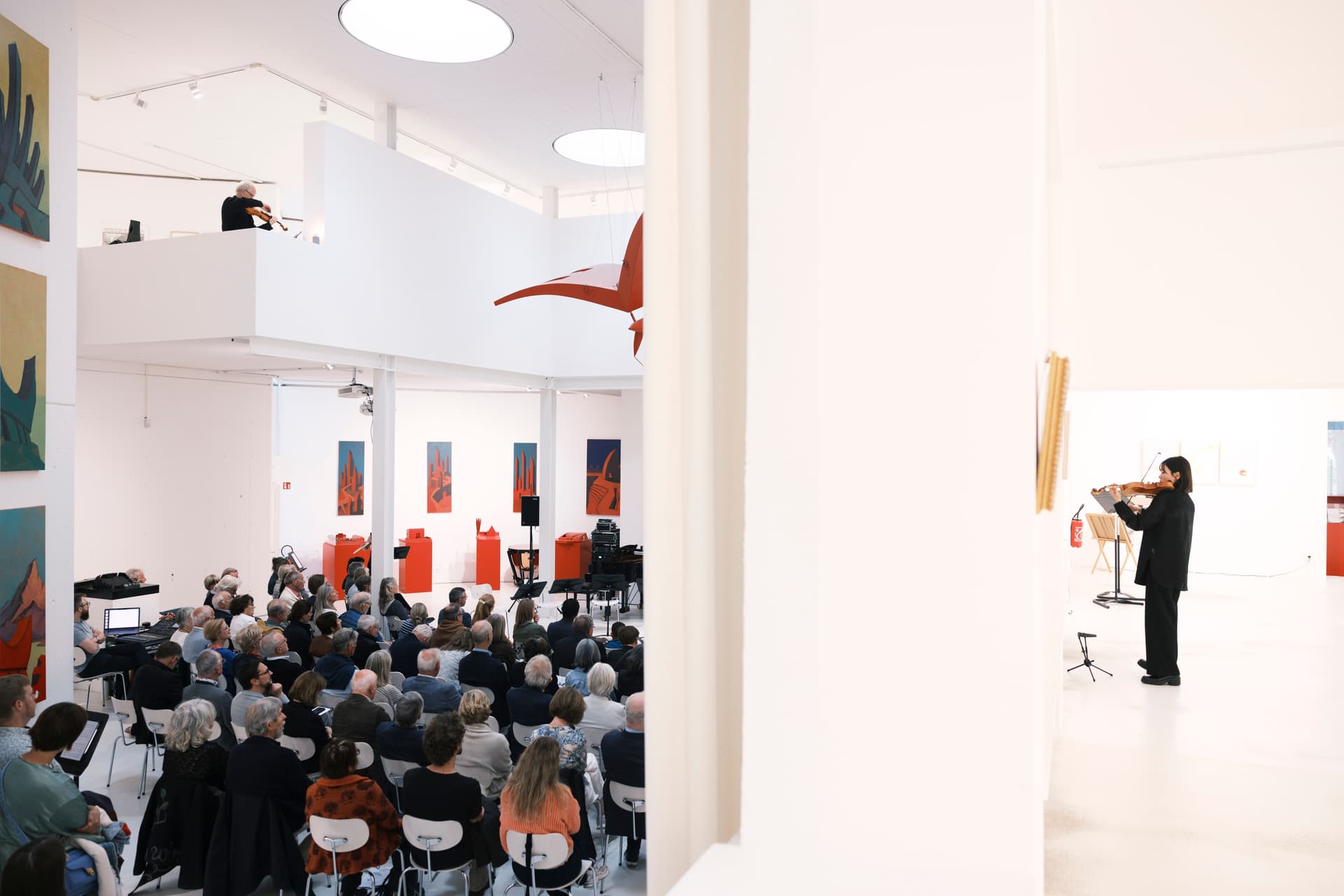
What international collaborations are planned for the near future?
Guy Frisch: In November, we’ll participate in the 38th edition of the Wien Modern festival, joining Salon Souterrain: Echoes of Numbers — a project by artist Elisabeth Bakambamba Tambwe that responds to the growing dynamics of exclusion in European societies and seeks to create shared spaces for encounter, dialogue, and artistic production.We’ll also present a series of four concerts in Taipei and Tokyo in collaboration with the ensemble KDM and IRCAM (Paris).In February 2026, we’ll perform Marlene — a cine-concert with music by Pascal Schumacher — at the Arsenal in Metz.
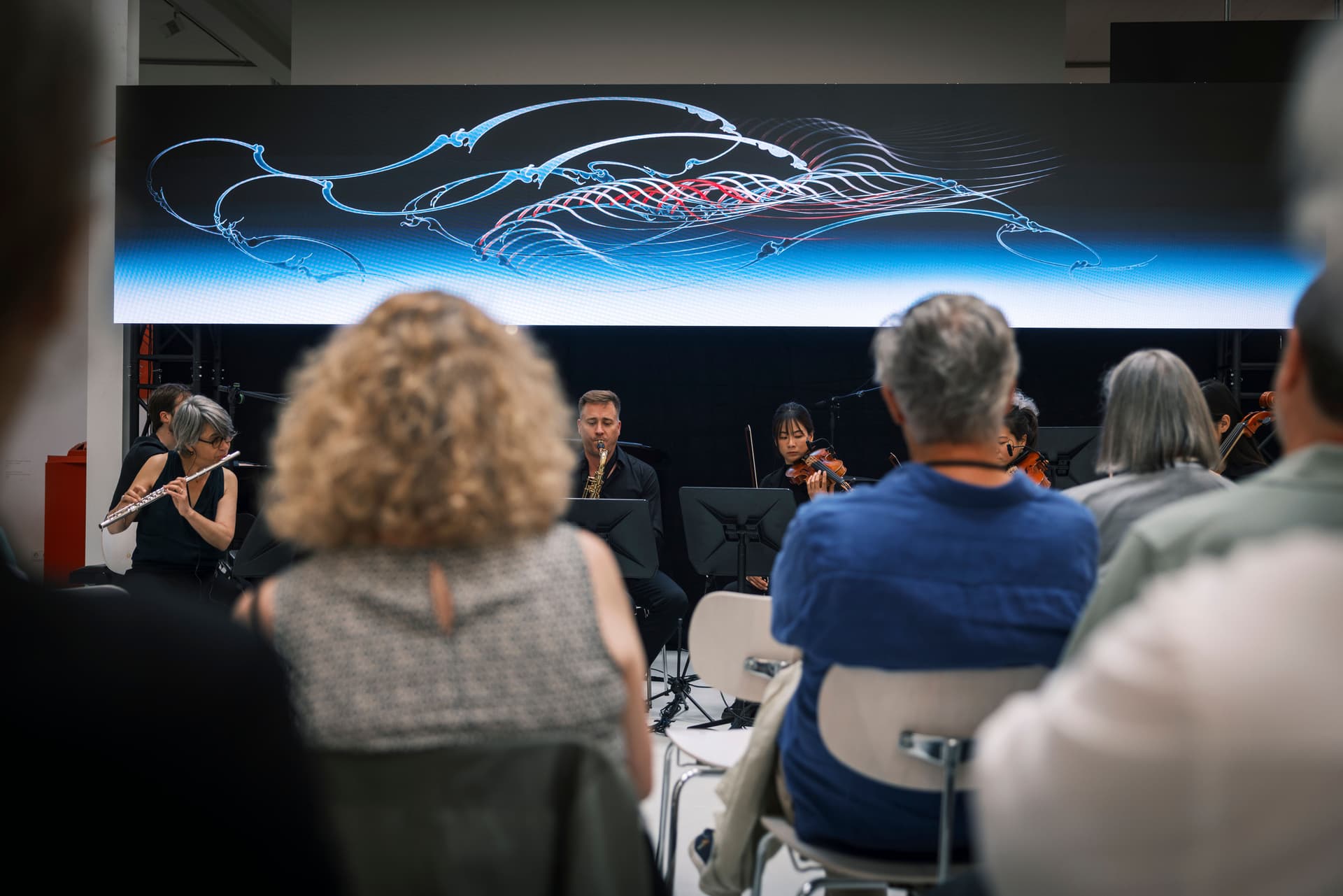
How do you see the development of Luxembourg’s contemporary music scene over the next 5 to 10 years?
Guy Frisch: We’ll continue striving to make contemporary creation more accessible and present even more works to wider audiences — especially young people — by familiarizing them with new sounds and this diverse aesthetic that blends many styles and influences of our time.Contemporary creation will keep expanding and integrating into classical programs. Lucilin will remain at the forefront, multiplying exchanges with composers, academies, and partners. Our adventure will go on in the spirit of exploration and innovation — constantly seeking new ideas and concepts, collaborating with cutting-edge technologies, and anticipating future artistic currents.
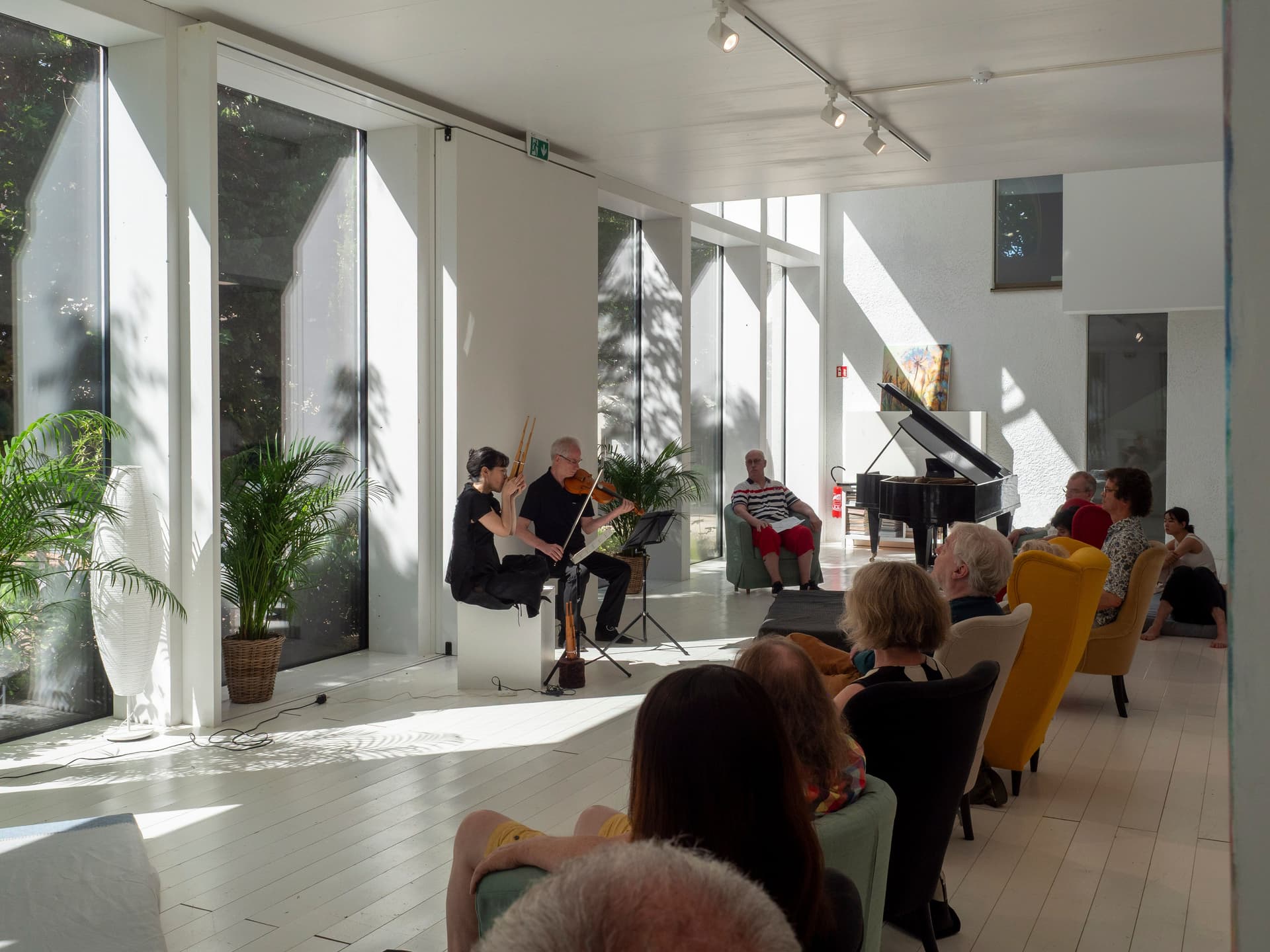
Do you have any favorite or underrated composers or works you’d like to highlight?
Guy Frisch: At Lucilin, we aim for balance — discovering and commissioning new works to help build a living repertoire. Our mission is to seek, to create, and to ensure that a wide range of works and composers are performed and shared — in Luxembourg and beyond — with the support of the Ministry of Culture and our partners.
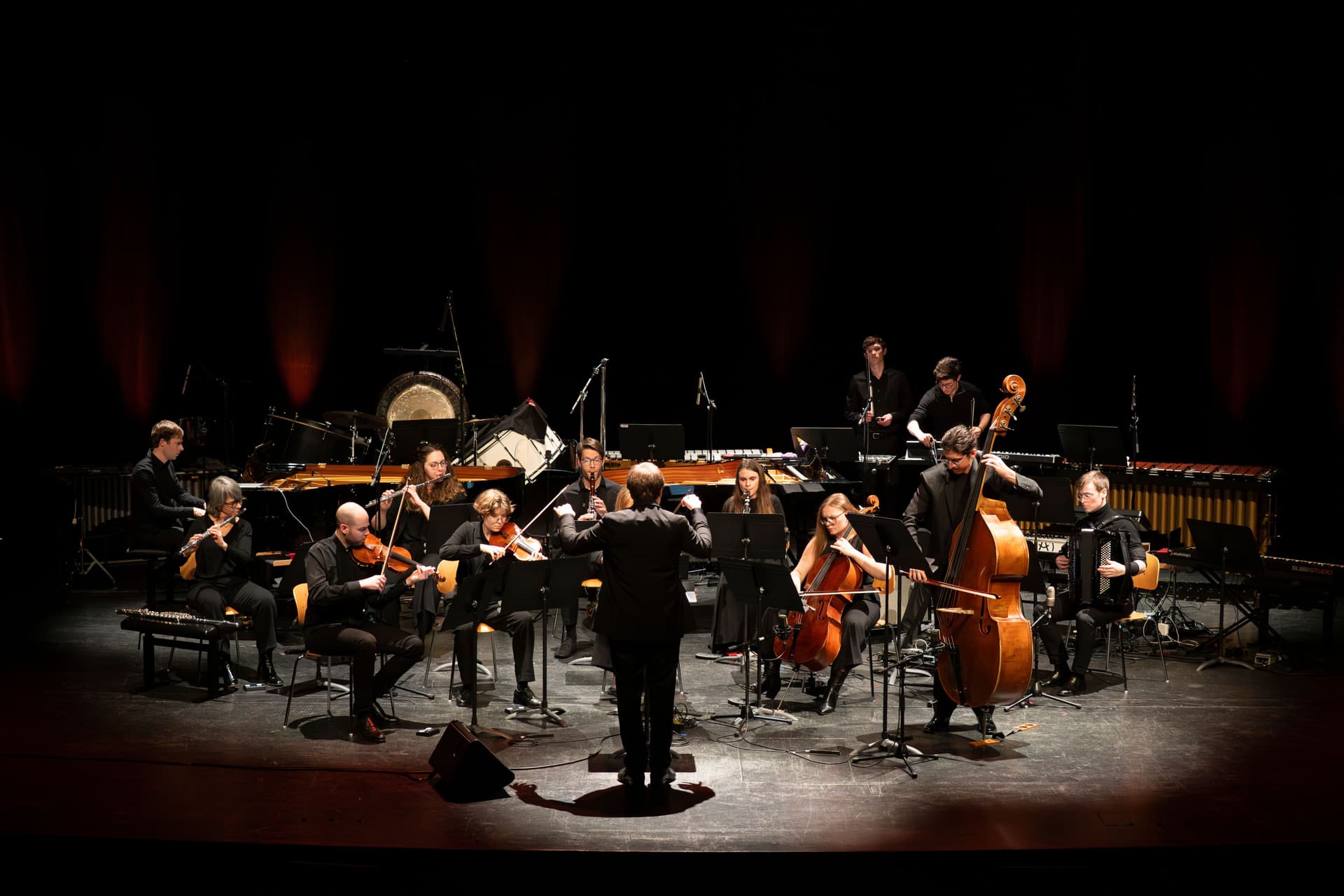
What, in your opinion, makes a United Instruments of Lucilin concert unique for the audience?
Sophie Deshayes: The guarantee of surprise. The full commitment of the entire United Instruments of Lucilin team to creating genuine closeness between artists and the audience — an atmosphere where emotion and curiosity are at the heart of the musical moment. Every program, deliberately bold and diverse, is designed with the desire to connect, challenge, and inspire.
